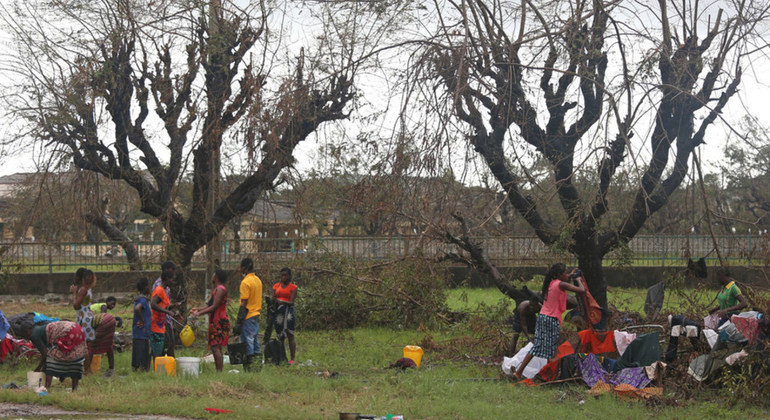A World Meteorological Organization (WMO) fact-finding mission to Mozambique recommended on Wednesday a package of disaster-risk-reduction priorities to strengthen the country’s early warning systems and reduce damage due to weather, climate and water-related hazards.
“Mozambique needs to build resilience”, WMO Secretary-General Petteri Taalas said in a message to an international pledging conference to secure support for reconstruction, on Saturday. “Although the number of tropical cyclones globally is expected to reduce in the future, the number of most intense tropical cyclones (category 4 and 5), associated with more rainfall, will increase in a warming climate,” he said.
He asserted that future sea level rise “will exacerbate the impact of storm surge on coastal regions” and raise flooding concerns, “particularly for low-lying cities such as Beira”, which was inundated by the cyclones in March and April. It also draws attention to Mozambique’s vulnerability to floods from both rivers and sea. The fact-finding team said that a $27 million investment is needed to strengthen meteorological and water supply sectors.
This includes reconstruction, rehabilitation and modernization of infrastructure and equipment, land surveys for flood-risk mapping and satellite rainfall estimation and forecast training.
The team of meteorologists and hydrologists, headed by WMO’s Filipe Lúcio, will present a report to an international pledging conference for Mozambique, taking place on Friday and Saturday in Beira.
‘A salutary warning’
On 14 March, months-worth of rain fell in a matter of hours around the coastal city as Idai provoked one of the worst disasters to ever hit the southern hemisphere.


